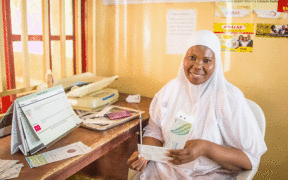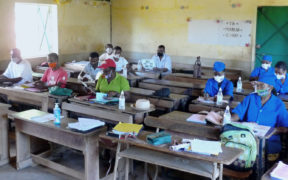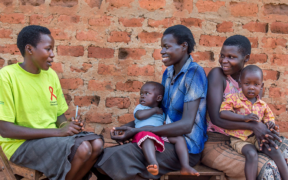Author:
Carolin Ekman

In March of 2020 many professionals increasingly turned to virtual solutions to meet with colleagues, due to the COVID-19 pandemic. As this was a new shift for most of us, the WHO/IBP Network published Going Virtual: Tips for Hosting an Effective Virtual Meeting. While the COVID-19 pandemic showed us the power and importance of virtual meetings to continue our essential work, it also reminded us how important face-to-face interactions are for networking and relationship building. Now that virtual meetings have become a routine part of our work, many have shifted their focus to hosting hybrid meetings, where some people are participating in-person and some join remotely. In this post, we explore the benefits and challenges of hosting a hybrid meeting as well as our tips for hosting an effective hybrid meeting.

The Inside the FP Story podcast explores the details of family planning programming. Season 2 is brought to you by Knowledge SUCCESS and the World Health Organization (WHO)/IBP Network. It will explore implementation experiences from 15 countries and programs around the world. Over six episodes, you will hear from the authors of a series of implementation stories as they offer practical examples and specific guidance for others on implementing high-impact practices in family planning and using the latest tools and guidance from WHO.

WHO/IBP Network and Knowledge SUCCESS recently published a series of 15 stories about organizations implementing High Impact Practices (HIPs) and WHO Guidelines and Tools in family planning and reproductive health (FP/RH) programming. This quick read shares considerations, tips, and tools that we learned while creating the series. Documenting implementation stories—to share country experiences, lessons learned, and recommendations—strengthens our collective knowledge about implementing evidence-based interventions.

In early 2020, the WHO/IBP Network and Knowledge SUCCESS Project launched an effort to support organizations in sharing their experiences using High Impact Practices (HIPs) and WHO Guidelines and Tools in Family Planning and Reproductive Health Programming. These 15 implementation stories are the result of that effort.













